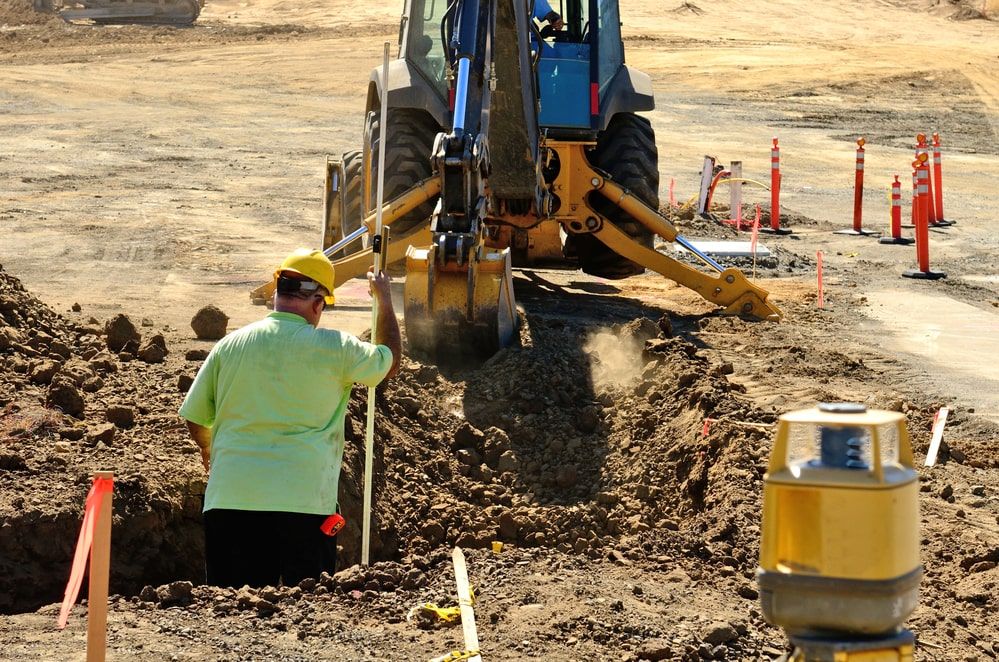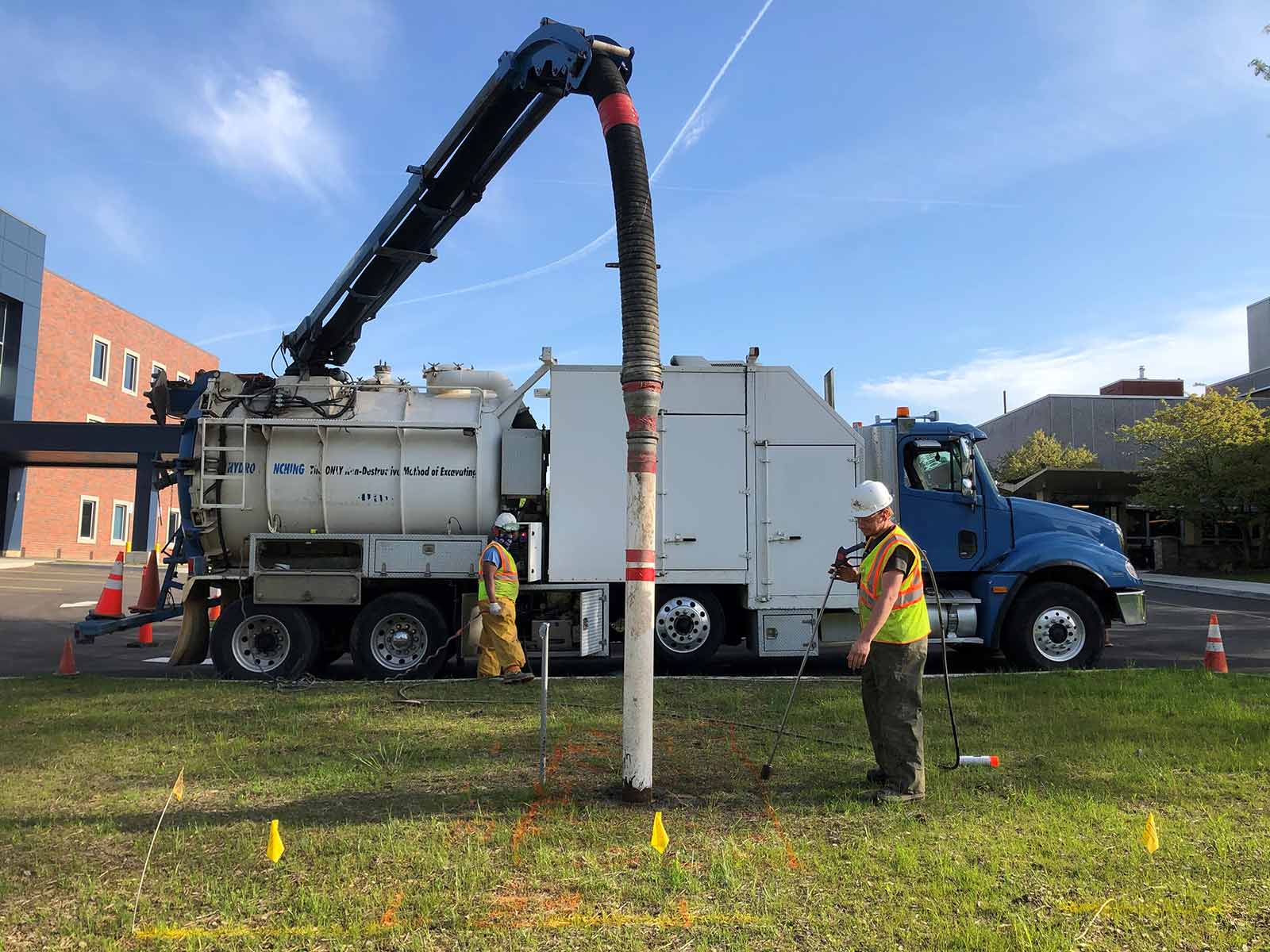Excavating Ohio - Top Excavation Specialists for Ohio Projects
Excavating Ohio - Top Excavation Specialists for Ohio Projects
Blog Article
Comprehensive Excavation Methods: Understanding the Fundamentals for Success
The cautious planning, accurate implementation, and thorough focus to information required in excavation jobs demand an extensive method that includes different basic facets. The true mastery exists not just in recognizing these principles yet in flawlessly incorporating them to navigate the intricacies of excavation projects with finesse.
Understanding Excavation Project Planning

Effective excavation jobs are improved the structure of careful and thorough preparation. The first phase of any kind of excavation job is the drawing board, where essential choices are made that can significantly influence the result of the task. Throughout this stage, it is vital to gather all relevant details about the site, including topographical surveys, dirt composition, and any possible risks that might exist. Understanding the job timeline, spending plan, and range constraints is essential for producing a comprehensive excavation plan that guarantees the project's success.
One trick element of excavation project planning is the growth of a detailed timeline that describes the sequence of landmarks, target dates, and tasks. This timeline works as a roadmap for the task team, enabling them to track progression and make required modifications to make certain the task remains on timetable. Furthermore, a well-defined budget that makes up all expenditures, including devices rental, labor costs, and materials, is necessary for avoiding expense overruns and delays. By thoroughly considering all these variables throughout the drawing board, excavation projects can be implemented efficiently and effectively, causing effective results.
Soil Analysis and Site Assessment
Carrying out comprehensive soil analysis and website assessment is a crucial action in the prep work stage of any type of excavation job. Soil evaluation entails determining the make-up, structure, and properties of the dirt at the excavation website. This details is essential for comprehending the dirt's bearing ability, dampness content, and potential for erosion, which are vital elements in determining the excavation techniques and devices needed for the job.
Site analysis surpasses dirt evaluation and includes a more comprehensive assessment of the total website conditions. This evaluation includes recognizing any type of possible threats, such as below ground energies, ecological worries, or unstable terrain, that might influence the excavation procedure. By thoroughly evaluating the website, project supervisors can establish effective excavation methods that focus on security, effectiveness, and ecological defense.
Using advanced technologies like ground-penetrating radar, dirt tasting, and drone studies can boost the accuracy and performance of dirt analysis and website analysis. Spending time and resources in these initial steps can ultimately save time and stop pricey hold-ups or complications during the excavation process.
Equipment Selection and Usage
Efficient excavation jobs rely greatly on calculated equipment choice and usage to ensure ideal efficiency and productivity. Picking the best equipment for the task is critical in taking full advantage of efficiency and decreasing downtime. Variables such as the type of soil, depth of excavation, and task scope play a substantial role in identifying the most appropriate tools for the task at hand.

In addition to picking the ideal equipment, proper utilization is crucial to task success. Operators needs to be trained to take care of the tools safely and efficiently - septic ohio. Routine upkeep checks and prompt repair work help prevent breakdowns and guarantee consistent performance throughout the task
Precaution and Rules Conformity
In the world of excavation jobs, focusing on safety and security measures and conformity with guidelines is vital to ensuring a secure and lawfully sound functional setting. Security measures content encompass a variety of methods, including performing thorough site analyses, executing proper signs and obstacles, and offering ample safety training for all workers associated with the excavation procedure. Adherence to policies, such as OSHA requirements in the USA, makes sure that the excavation project meets the necessary criteria to protect employees, bystanders, and the surrounding atmosphere.

Tracking Progress and Adjusting Approaches
Exactly how can predict supervisors successfully track the advancement of excavation jobs and adapt their methods as necessary to my review here optimize results? Surveillance progress is important for making certain that excavation jobs stay on track and fulfill due dates.

Verdict
In verdict, grasping the fundamentals of thorough excavation methods is essential for the success of any project. By recognizing project planning, examining soil and website problems, selecting proper tools, adhering to security regulations, and keeping track of progression, project managers can make certain a reliable and smooth excavation process. Executing these techniques will lead to effective outcomes and reduce possible dangers or problems during the excavation task.
The preliminary phase of any type of excavation task is the preparation phase, where vital decisions are made that can substantially impact the end result of the job. Recognizing the task timeline, spending plan, and range restraints is critical for producing an extensive excavation plan that ensures the project's success.
Just how can forecast managers successfully track the advancement of excavation jobs and adjust their strategies as necessary to optimize results? By very closely monitoring progress and being eager to adjust approaches, job managers can improve the overall success of excavation projects.
By recognizing job planning, assessing soil and website problems, choosing suitable equipment, complying with safety policies, and keeping an eye on development, task supervisors can ensure a efficient and smooth excavation process.
Report this page